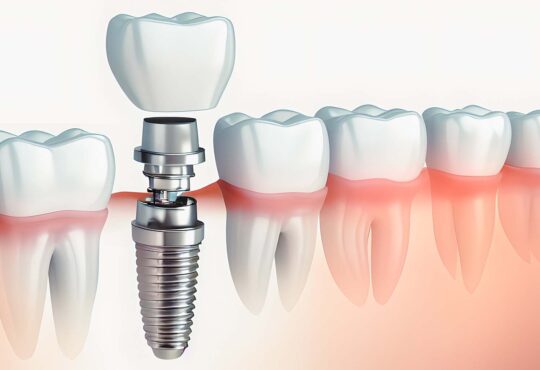
How Do You Know You Need a Root Canal and Why Do You Need It?
Maintaining dental health is essential for overall well-being, but when tooth pain or sensitivity strikes, it can leave us wondering if a simple filling or a more serious procedure is needed. A root canal is one such treatment that can address severe tooth issues. But how can you tell if you need one, and why is it necessary? Here, with insights from Dr. Sagarika Muni at Clinic ABCD, we’ll walk through the signs, symptoms, and benefits of this crucial procedure.
Understanding the Purpose of a Root Canal
A root canal is a dental procedure aimed at treating infections within the tooth. When the pulp, which is the soft tissue inside a tooth that contains nerves, blood vessels, and connective tissue, becomes inflamed or infected, it can cause significant pain and may compromise the health of the entire tooth. Left untreated, the infection can spread, leading to abscesses or other serious health problems. A root canal removes the infected or damaged tissue, cleans and disinfects the inner chambers, and then seals the tooth, allowing it to function normally again.

Signs You Might Need a Root Canal
Identifying when you need a root canal can be challenging, as symptoms often overlap with other dental issues. However, Dr. Sagarika Muni and the experts at Clinic ABCD note that certain symptoms are more commonly associated with the need for this procedure. Here are some telltale signs to watch for:
- Persistent Tooth Pain Persistent pain, especially when chewing or applying pressure, is one of the most common symptoms. This pain may be constant or come and go, but if it lingers, it could indicate an infection deep within the tooth.
- Sensitivity to Heat and Cold Sensitivity that persists long after exposure to hot or cold foods or beverages may be a sign that the tooth’s nerves are affected. Over-the-counter sensitivity treatments might offer temporary relief, but long-lasting discomfort may indicate a deeper issue requiring a root canal.
- Swollen or Tender Gums Infected teeth can cause the gums around them to become swollen and tender. This swelling may come and go, or it may be persistent. In severe cases, an abscess may form, appearing as a small bump or pimple on the gum.
- Discoloration of the Tooth Discoloration is often a sign of nerve damage within the tooth. When a tooth appears grayish or darker than the others, it’s likely due to a dying pulp inside, which may require removal via a root canal.
- Painful or Tender Tooth When a tooth becomes tender to the touch, it could indicate that the surrounding tissue is inflamed or infected. The tenderness may worsen with pressure, and this type of pain should not be ignored.
- Chipped or Cracked Tooth A cracked or chipped tooth can open a pathway for bacteria, leading to infection in the tooth’s pulp. Even if the chip seems minor, it’s important to have it examined since the underlying damage may be severe enough to require a root canal.
- Deep Decay Cavities that have gone untreated can cause decay to spread into the pulp. Once decay reaches the pulp, the only solution may be a root canal, especially if the tooth structure is compromised.
Why You Need a Root Canal
A root canal is often recommended for several key reasons. It can:
- Relieve Pain: Root canals are essential for removing infected tissue, which helps eliminate the pain caused by inflammation. This can offer a significant improvement in quality of life, especially if you’ve been suffering from chronic dental pain.
- Preserve Your Natural Tooth: Root canals allow you to keep your natural tooth. Although tooth extraction is an alternative, preserving your natural teeth whenever possible is often better for your jaw structure, alignment, and bite function.
- Prevent Infection from Spreading: If left untreated, a tooth infection can lead to severe complications. The infection may spread to other teeth or even enter the bloodstream, causing systemic issues.
- Restore Function: Following a root canal, the tooth can function normally without pain or sensitivity, allowing you to eat, drink, and live comfortably.
- Save Your Smile: When infections are left untreated, the tooth may become discolored or visibly damaged. A root canal, combined with restorative treatments, can help maintain a natural and attractive smile.
The Root Canal Procedure
At Clinic ABCD, Dr. Sagarika Muni and her team perform root canals with precision and care, ensuring a comfortable experience for patients. Here’s what you can expect:
- Assessment and X-rays: Initially, the dentist will take X-rays to determine the extent of the infection and assess the internal structure of the tooth.
- Local Anesthesia: Once the procedure begins, local anesthesia will be administered to numb the area, making the process painless.
- Removal of Infected Pulp: The dentist creates a small opening in the tooth to access and remove the infected or damaged pulp.
- Cleaning and Shaping the Root Canal: The root canal is cleaned, disinfected, and shaped to ensure no bacteria are left behind.
- Filling and Sealing the Tooth: After thorough cleaning, the dentist fills the canals with a rubber-like material and seals the tooth. In some cases, a temporary filling may be placed before a permanent crown is fitted.
- Follow-up: A follow-up appointment ensures the infection is completely cleared and the tooth is properly sealed.

What Happens If You Avoid a Needed Root Canal?
Neglecting a root canal can have severe consequences. Infection can spread beyond the tooth, causing abscesses and even systemic health issues such as infections in the sinuses or, in rare cases, the brain. Additionally, you risk losing the tooth, which can lead to costly replacements and impact your bite alignment.
Preventing the Need for a Root Canal
While not all root canals can be prevented, regular visits to dental care providers like Dr. Sagarika Muni at Clinic ABCD can help detect potential issues early. Good oral hygiene, a balanced diet, and wearing a mouthguard during sports or grinding can also help reduce the risk of serious dental infections.
Final Thoughts
Root canals may seem intimidating, but they are a highly effective way to relieve pain, save your natural tooth, and prevent further health complications. If you experience any of the symptoms mentioned, don’t ignore them. Schedule a consultation with a dental professional to assess your needs.
For expert care, visit Dr. Sagarika Muni at Clinic ABCD. With her experience and compassionate approach, you can trust your dental health is in excellent hands.



